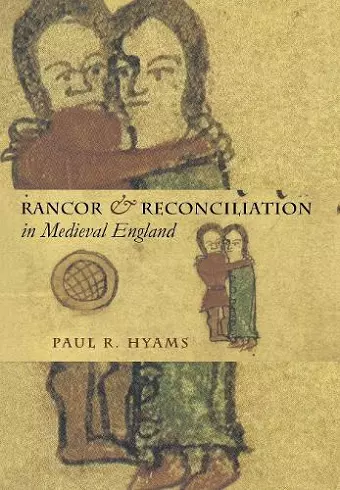Rancor and Reconciliation in Medieval England
Format:Hardback
Publisher:Cornell University Press
Published:20th Oct '03
Currently unavailable, and unfortunately no date known when it will be back

Duels and bloodfeuds have long been regarded as essentially Continental phenomena, counter to the staid and orderly British ways of settling differences. In this surprising work of social and legal history, Paul R. Hyams reveals a post-Conquest England not all that different from the realms across the Channel. Drawing on a wide range of texts and the long history of argument about these texts, Hyams shatters the myth of English exceptionalism, the notion that while feud and vengeance prevailed in the lands of the Franks, England had advanced beyond such anarchic barbarism by the time of the Conquest and forged a centralized political and legal system. This book provides support for the notion that feud and vengeance flourished in England long beyond the Conquest, and that this fact obliges us to reconsider the genealogies of both common law and the English monarchy.Moving back and forth between a broad overview of 300 years of legal history and the details of specific disputes, Hyams attends to the demands of individuals who believed that they had been aggrieved and sought remedy. He shows how individuals perceived particular acts of violence and responded to them. These reactions, in turn, sparked central efforts to manage disputes and thereby establish law and order. Respectable litigation, however, never eclipsed the danger of direct action, often violent and physical.
"Paul R. Hyams engages in some feuds of his own in this consistently informative, learned, and imaginative account of feud's stubborn refusal to take its leave from the legal and political stage from the 9th to the 13th century, though it was invited (ambivalently) by king and cleric to vacate the scene." -- William Ian Miller, University of Michigan Law School
"Rancor and Reconciliation in Medieval England is calculated to start a new round in the endless dialogue among historians. Private vengeance, and specifically the feud, Paul R. Hyams argues, was as much in vogue in early medieval England as it was on the Continent. Not only that, it continued to be the way that medieval English men and women often preferred to redress their wrongs, not only in the decades that followed the Norman conquest, but right up to the reign of Edward I, more than a century after English common law had begun to provide alternative means to settle disputes. Legal historians, Hyams insists, need to pay more attention than they have usually done to the choices that law's consumers make when they seek satisfaction for the wrongs they have suffered. In a book filled with learning and shrewd observations, Hyams offers historians a provocative new construction of the early history of the common law." -- James A. Brundage, Ahmanson-Murphy Professor Emeritus, The University of Kansas
ISBN: 9780801439964
Dimensions: 235mm x 155mm x 28mm
Weight: 907g
376 pages